3 possible doorbell connection schemes
Method number 1 - One button
The easiest way to install an apartment bell is to connect the main unit to one button located at the door. This type of connection is used in most apartments, both the old model and new buildings. Switching wires to a 220v network is not complicated, because there are only 4 of them (with grounding 5): zero must immediately be brought to the main unit, and the phase goes to break. The doorbell wiring diagram is provided below:
A simplified version looks like this:
Method number 2 - Two buttons
If you want the signal to work from two places, which is very convenient in private houses, then you will have to install two buttons. This method of connection is best used if you can get to your home from the front door and through any other door. Also, connecting a doorbell with two buttons is often used in production. The connection diagram in this case is as follows:
There is nothing complicated, just the buttons are connected in parallel. Note that the phase conductor should go to the gap, and not zero. About, how to find the phase, we told in the corresponding article.
Method number 3 - Two main blocks
Well, the last, no less popular input call connection scheme is with two main blocks. Again, this option is not used in apartments, because and one signaling device will be enough to hear that guests have arrived. However, in two-story private houses it can not be heard from the second floor, as they ring on the first floor. In this case, it is recommended connect two-key switch, each button of which will be responsible for its floor. In order to make it clear to the guests, sign each key and warn them in advance about how to use such an unusual method of notification about the visit. The circuit for connecting a call to 220v will have the following form:
Video example of setting a bell above a door:
We draw your attention to the fact that all the provided call connection schemes in the apartment apply only to wired models. It is much more convenient to use remote devices that operate on batteries or simply from a wall outlet. We hope that the information was clear and interesting for you!

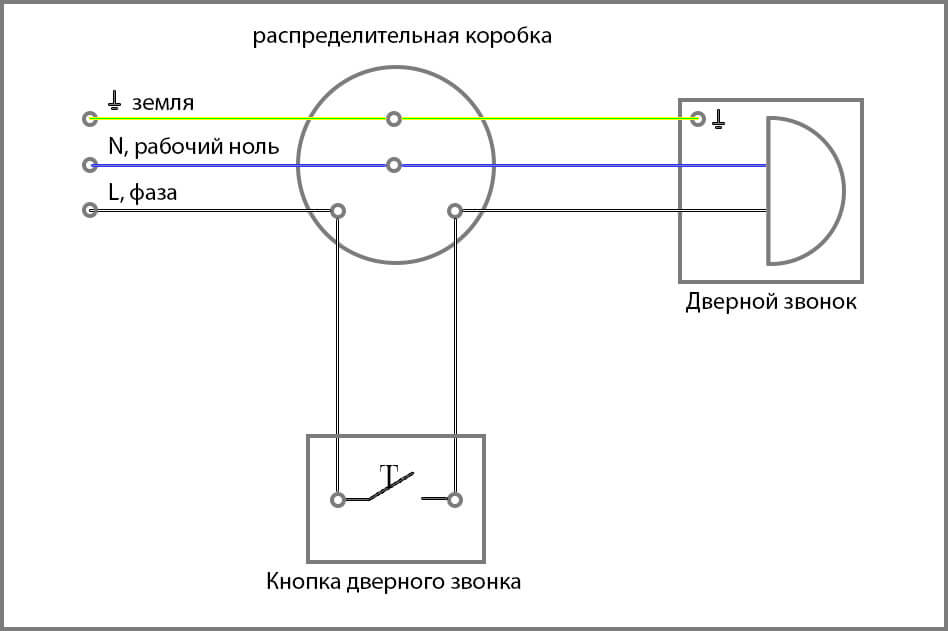
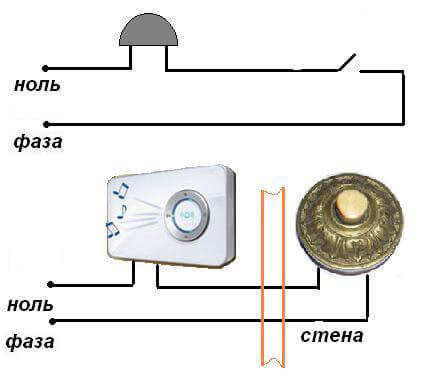
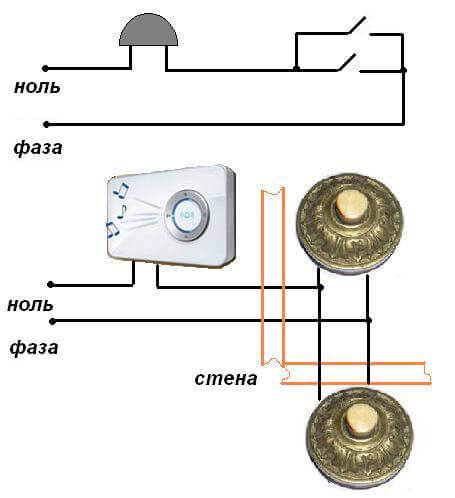
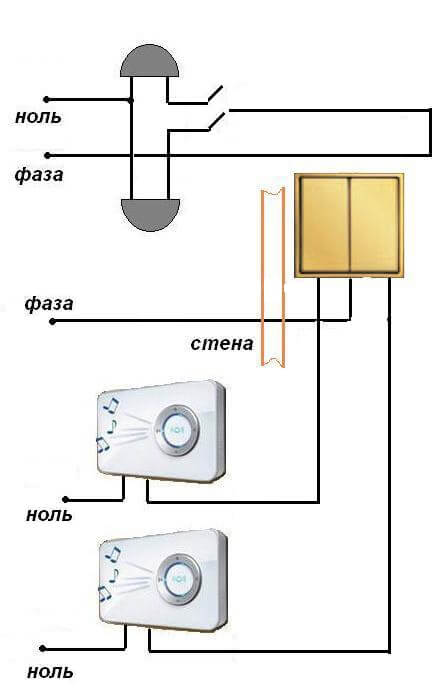

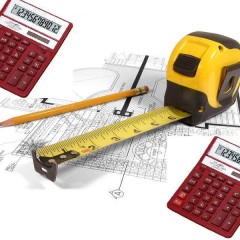
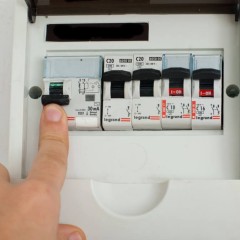
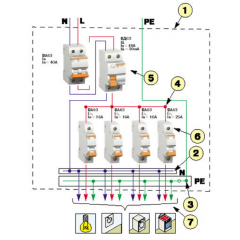

The author did not specify that in modern wired calls, the button should go not 220 volts, but undervoltage.